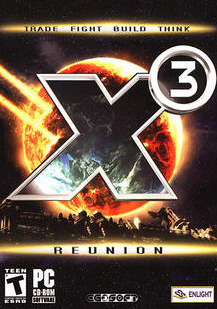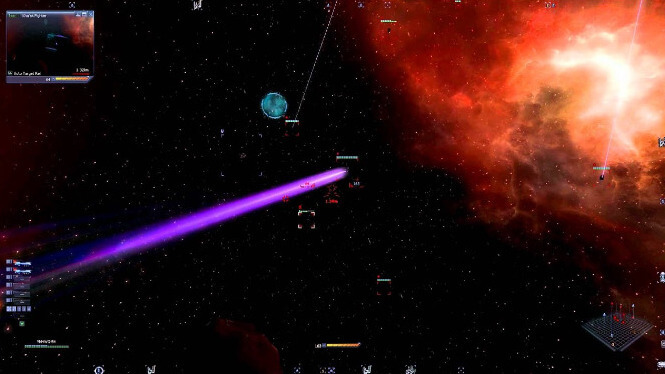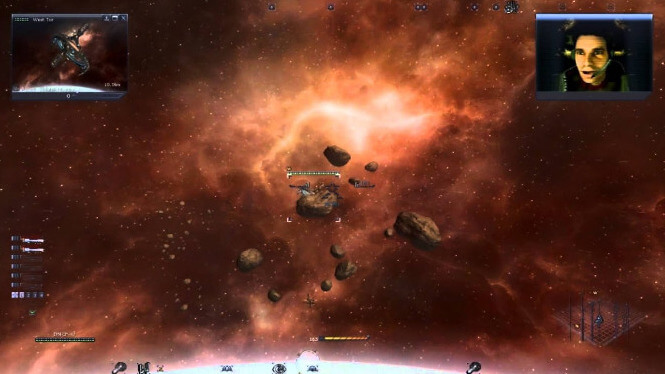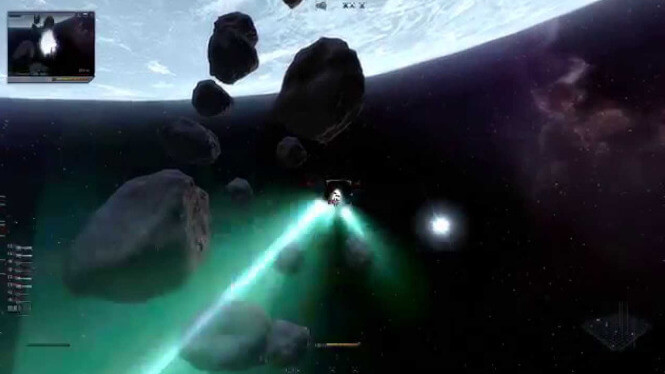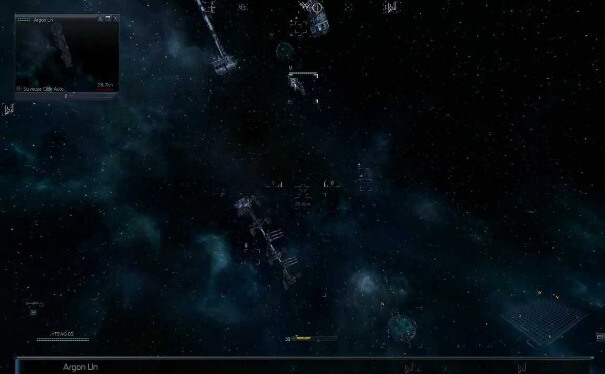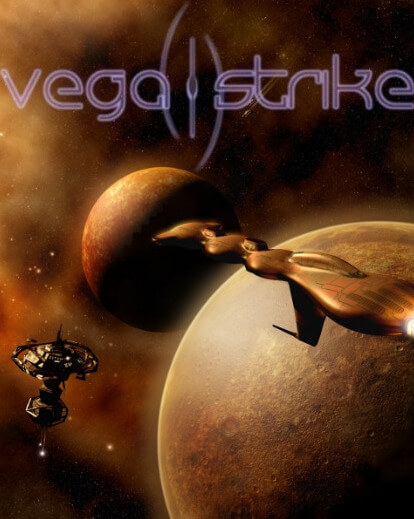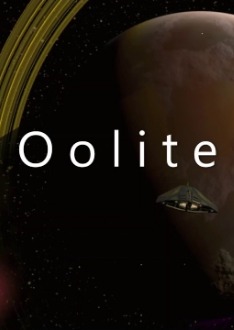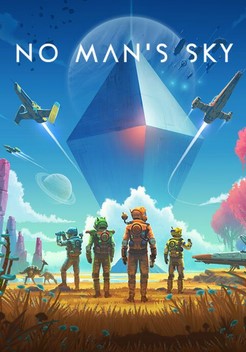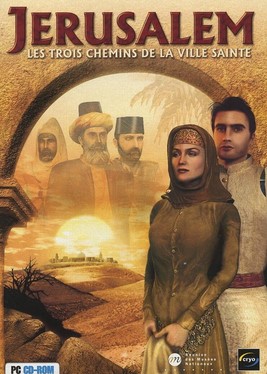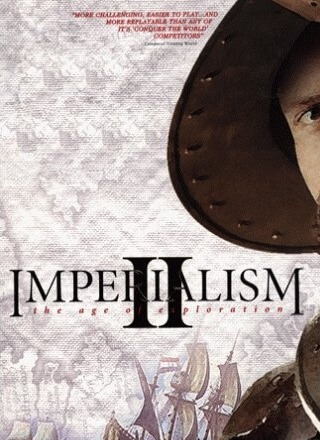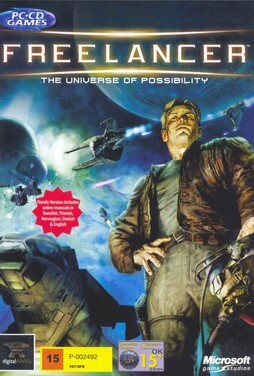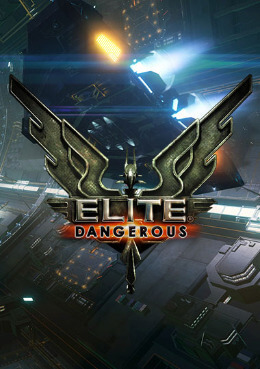X3 uses a new, specifically developed graphics engine to give highly detailed renders of ships and stations, along with photo-realistic planets and a host of new effects, including lighting, shadow and reflection. Graphically, Egosoft redesigned everything from scratch. The stations are restructured, larger and more detailed. Few contain the internal docking ports of the prior games, instead featuring external docking clamps. Ship sizes have been redesigned according to a logical scale. Egosoft ensured a pilot would actually fit in their cockpit, and that a carrier vessel was actually large enough to carry a given number of ships. As such, ships and stations are noticeably different in size from prior games.
The HUD has also been altered. Egosoft removed non-functional internal cockpit graphics, giving the player a largely unobstructed view of space. There are now markers over game objects such as ships, stations and large asteroids, and each object is selectable by a simple mouse click, or through a keyboard or controller. X3 uses a new interface designed to be faster, more user friendly, and compatible with a console controller. The game carries over many of the same short-cut keys from previous games, but now the mouse too can be used for functions including menu navigation, target selection, flying and combat.
The economy has been redesigned to be more sophisticated, with non-player ships now in direct competition with the player. New tools have been added to help the player compete in the X-Universe, including a new way of linking factories together into complexes which can be self-sustaining to varying degrees. There are also new in-game software products that allow a player to automate operations. In addition, Egosoft presents the player with a number of new scripting tools encouraging computer literate players to write their own functions into the game. This is further supported through Egosoft's scripts and Modding forum, where players share ideas.
Combat AI is improved, and enemy behavior redesigned. Many pirates now travel in gangs, often heavily armed, making them much more threatening than in earlier games. There are also smugglers, pirates who remain hidden until their cargo is scanned for contraband wares. There are now pirate missions available to the player, as well as a new pirate faction, known as the Yaki. Xenon and Kha'ak remain the primary antagonists; both races are entirely hostile and will often mount full scale sector invasions.
Status has far more relevance than in previous games. Now, many kinds of weapon, ship, and factory are not purchasable until the player has earned sufficient reputation with the vendor race. With some races, reputation can be earned through trade; with others, the player must earn respect by killing unwanted visitors in the race's space - such as pirates, Khaak, or Xenon. Some races appreciate both. By choosing to be an upstanding citizen, the player can earn the right to buy powerful new weapons, ships and technologies. By engaging in piracy, destruction, smuggling or other crime the player may lose reputation, and so may lose the privilege to buy things. The persistent wrongdoer may lose the right to land at stations, or even to enter sectors, being attacked on sight. Eventually, the player may find it impossible to buy many of the game's most powerful ships, weapons and technologies (although such things may still be possible to acquire through less orthodox means).
Game Universe
By X3, the X-Universe consists of around 160 sectors connected by two-way jumpgates. The main area of each sector typically contains several stations and up to four gates. The game is open-ended, allowing the player to go where they like, when they like, doing whatever they like; a player is limited only by their in-game status and resources. As such, a driving force of the game is to acquire credits (the universal currency) and status.
The game contains numerous races. Status affects how individuals in different races respond to the player and what kind of missions are offered. A player's status is categorised according to "Mercantile" skill, "Combat" skill and a "Notoriety" ranking for each race.
Using credits, a player can buy wares from stations. These wares may be used, or flown to another station where they can be sold, ideally for a profit. However, prices vary depending on demand; the less of a ware there is, the higher its price. As such, the X-Universe has a truly dynamic market-driven economy. A player can capitalise on emergent trends, meeting demand to make vast profits, or as easily, can waste money and time on a bad cargo choice. In X3, many NPC ships have the same plan, and the player can easily miss their intended market if another ship arrives first. As players builds profit they can buy equipment, weapons, ships, and even their own factories.
Factory stations consume power and resources to produce products, which can then be sold into the X economy. If the product is rare, and the resources are cheap and plentiful, the factory can make profit. If not, it is possible to lose money. By filling a gap in the economy, a player can make solid and consistent profit through a factory. However, X3's economy is self-adjusting; NPCs are also able to build factories and can similarly profit. As such, X3 has the most advanced, realistic, and arguably the most competitive economy of all the X games.
The player can acquire an unlimited number of ships and stations, of varying size, shape and function. Starting with little, the players can build their empire, set their own goals, and choose their own path in how they wish to shape the universe.
